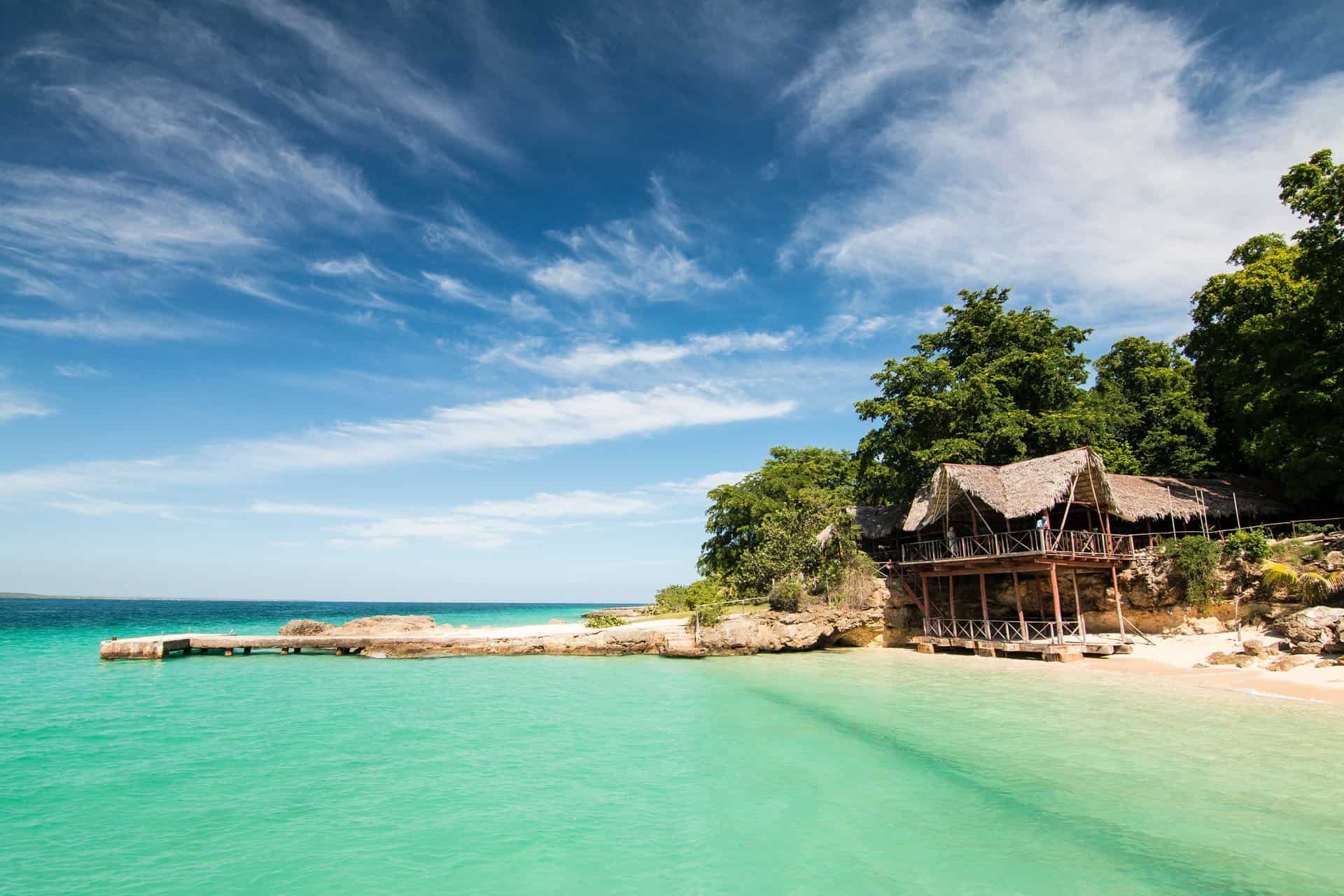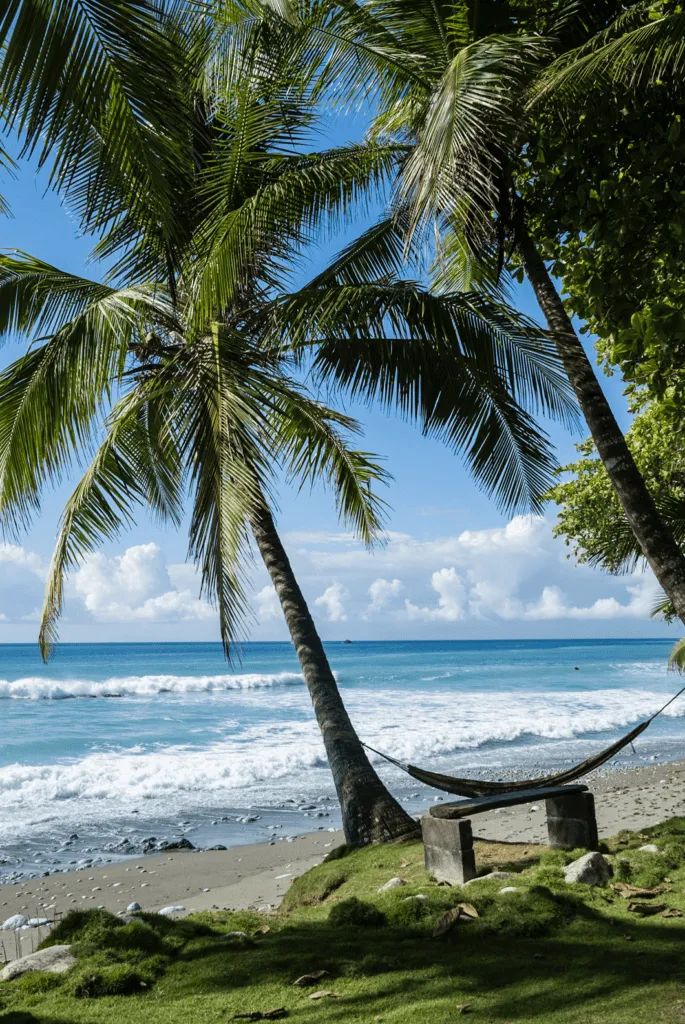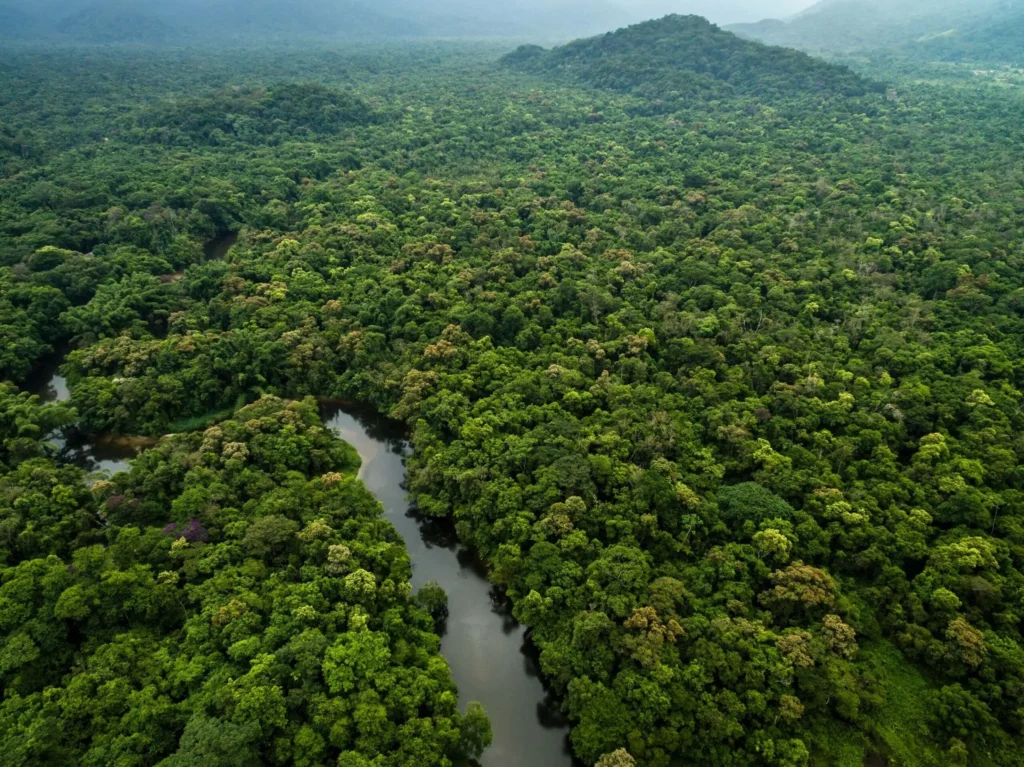
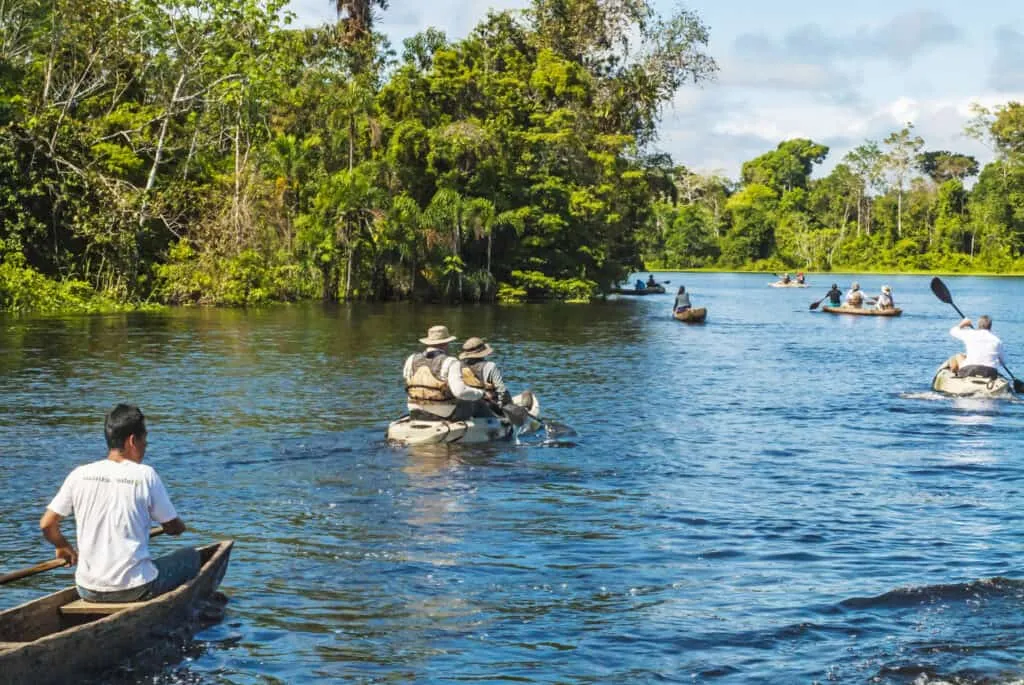
WHEN & WHERE TO TRAVEL IN THE AMAZON
The Amazon is the single largest tropical rainforest in the world – spanning 6.7 million square kilometers across eight South American countries.
With such immensity comes remarkable variety – in ecosystems, wildlife, and weather – as well as distinct regional seasons. For travellers with the time and curiosity to do it properly, choosing when to go is as important as choosing where. Water levels change remarkably with the rains, affecting not just wildlife sightings, but whether you explore by canoe, on foot, or from the air. Trails disappear beneath rising rivers, forests flood, and wildlife concentrates in different regions throughout the year.
This guide breaks down the best time to visit key Amazon regions across Brazil, Peru, Colombia, Ecuador and Bolivia – unveiling what to expect in each season, and where to go for the most rewarding wildlife encounters.
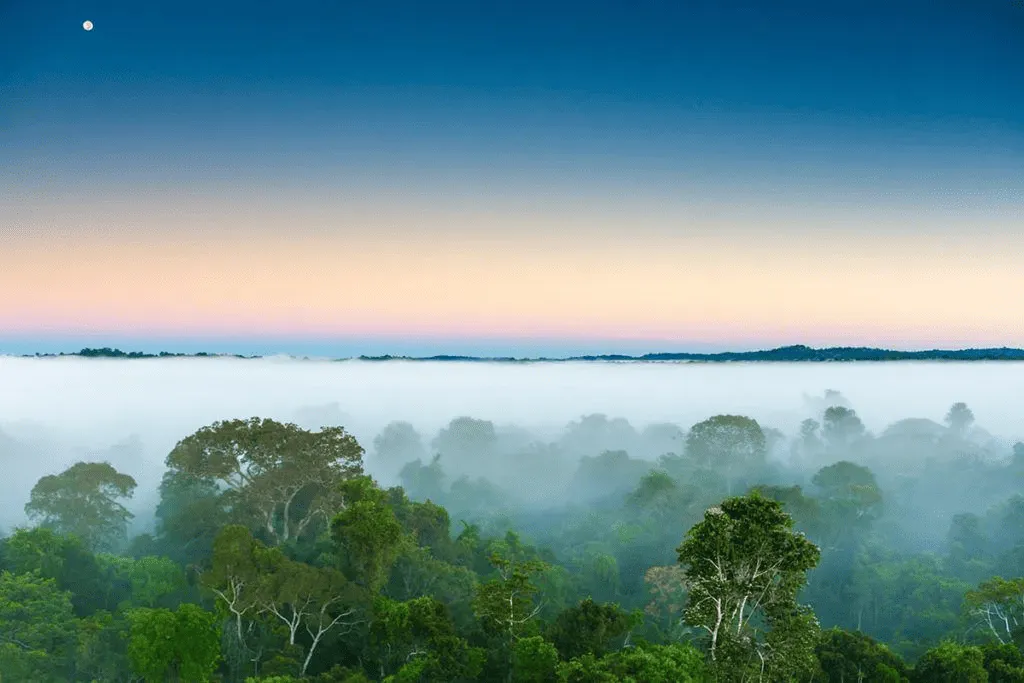
When are the Wet and Dry Seasons in the Amazon?
The Amazon follows two broad seasons, wet and dry. However, due to its immense scale, the timing and intensity of these seasons vary by region.
Dry Season in the Amazon (July to December): This period is considered the best time to visit the Amazon for most travellers, offering the best visibility for hiking, photography, canoeing, and deeper exploration. The weather is drier and less humid, with occasional showers. The rivers and tributaries are lower, making it easier to navigate and explore the intricate waterways. This also makes wildlife sightings more common, as animals congregate near water sources.
Wet Season in the Amazon (January to June): The wet season brings frequent rainfall, resulting in higher water levels and flooded areas. The rainforest comes alive with lush greenery and blooming flowers during this time, making it perfect for birdwatching. Rivers and lakes also expand, allowing for unique experiences like exploring flooded forests and observing aquatic wildlife. However, some areas may be more challenging to access due to the high water levels and frequent downpours.
Central Amazonia is generally much drier than the Peruvian Amazon and Eastern Brazil, but you can still expect cooler temperatures and less rainfall across the region from July onwards. And even with the heavy rain that the wet months bring, the wildlife is well adapted to the tropical climate of the Amazon and its dramatic variations.
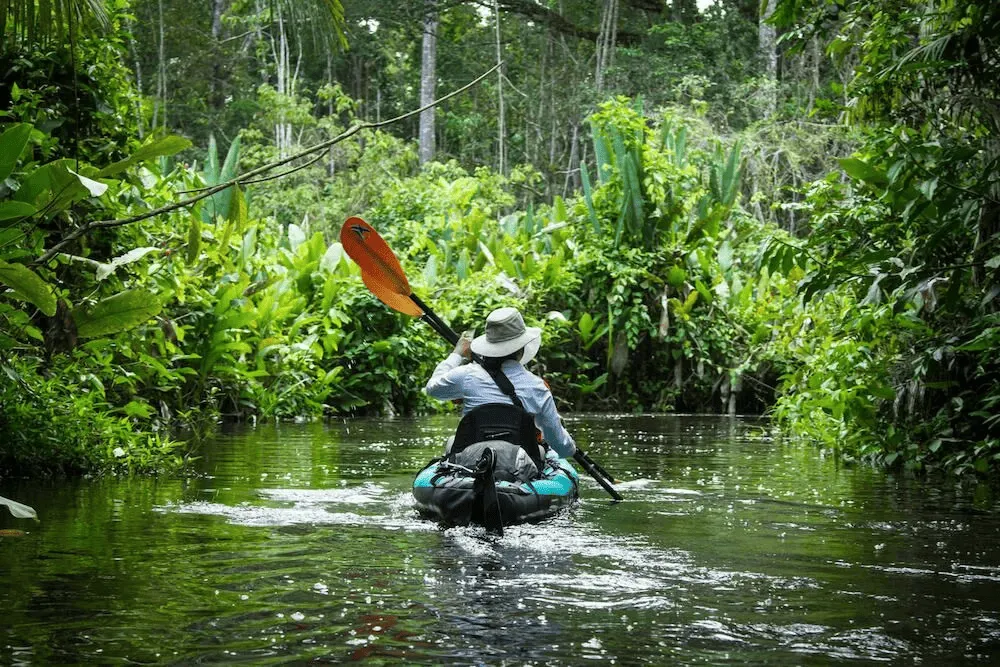
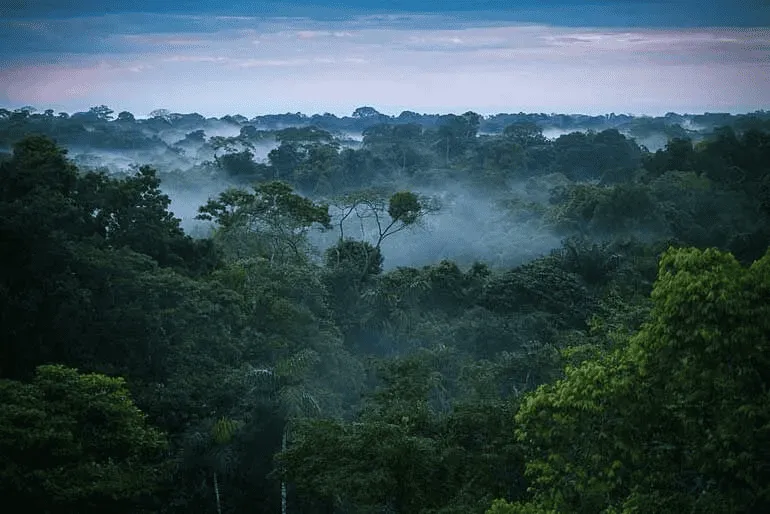
BRAZIL
When is the best time to visit the Brazilian Amazon?
With around 60% of the entire Amazon within its borders, Brazil offers vast variety, from remote Indigenous territories near the Colombian border to the riverine archipelagos of the central basin. The region is hot and humid year-round, with temperatures hovering around 30°C. Unlike coastal Brazil, where temperatures can swing significantly, the Amazon remains fairly consistent.
The best time to visit the Brazilian Amazon is typically between July and December, when river levels drop, wildlife congregates, and trails become accessible. June can also be particularly beautiful, just after the rains, when forests remain partially flooded.
Where should I visit in the Brazilian Amazon?
Anavilhanas Archipelago: A labyrinth of more than 400 river islands northwest of Manaus, known for exceptional birdlife and mirrored waters. Travel is possible year-round, though August to November offers the best kayaking and wildlife viewing. Here, Anavilhanas Jungle Lodge is a Plan South America favourite.
Manaus & the Central Amazon: The main gateway to Brazil’s Amazon, Manaus sits at the confluence of the Rio Negro and Solimões Rivers. From here, travellers can embark on private river cruises or stay at high-end jungle lodges. The best window here is from July to December.
Cristalino State Park & the Southern Amazon: Near Alta Floresta in northern Mato Grosso, this transitional zone between Amazon rainforest and cerrado savannah is among Brazil’s richest areas for biodiversity. It’s especially prized for birdwatching, with over 600 recorded species, and for its scientific research initiatives. Visit Cristalino Lodge during the dry season (June to November) for canopy climbs, trail hikes, and calm river excursions.
São Gabriel da Cachoeira: Far upriver near the Colombian border, this remote outpost is surrounded by Indigenous territories and some of the Amazon’s most pristine ecosystems. Travel here is highly specialist, and best arranged between September and November, when river access is most reliable.

PERU
When is the best time to visit the Peruvian Amazon?
Spanning over 782,880 square kilometers, Peruvian Amazonia is the second-largest expanse of the Amazon. The mighty Amazon River and its tributaries meander through the landscape, tracing nearly two-thirds of the country. But the Peruvian Amazon is smaller than Brazil’s, making a visit more personal.
Wildlife sightings are rife year-round, but the dry season, running from May to October provides better visibility and increased animal activity. If you’re after the cooler temperatures of Brazilian summer but can only travel in spring, Peru could be your answer.
What are the best regions to visit in the Peruvian Amazon?
Iquitos and Pacaya-Samiria National Reserve: The largest city in the Peruvian Amazon, Iquitos is only accessible by air or river. From here, travellers can explore Pacaya-Samiria – a vast reserve of seasonally flooded forest teeming with biodiversity, including pink river dolphins, manatees, sloths, and black jaguars. This region is best explored by water, and we especially love Delfin Cruises – a series of small, luxurious vessels offering private excursions deep into the reserve. The dry season is ideal for wildlife spotting and smooth navigation along the tributaries.
Puerto Maldonado and Tambopata National Reserve: In the far south, Puerto Maldonado serves as the gateway to Tambopata, one of Peru’s most ecologically diverse areas. Clay licks attract hundreds of macaws and parrots, and canopy towers offer sweeping views of unbroken rainforest. There’s a wide range of accommodation, from the understated Tambopata Eco Lodge to Inkaterra Reserva Amazonica, which offers a more refined lodge experience with strong conservation credentials. Visit during the dry season for optimal birding, wildlife activity, and trail access.
Manu National Park: A UNESCO World Heritage Site, Manu stretches from Andean cloud forest to lowland jungle, and is home to over 1,000 bird species and several uncontacted Indigenous groups. Access is limited during the rainy season, so travel is best between June and September, when road conditions improve and humidity eases. Trips here tend to be longer and more involved, often combining overland travel with river navigation through little-visited stretches of the rainforest.
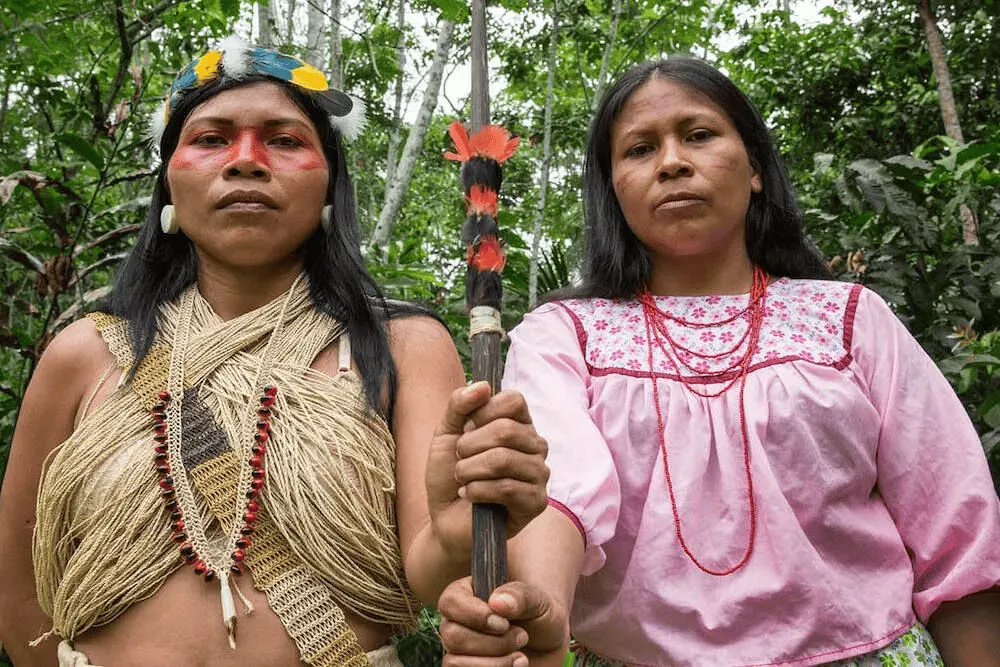
COLOMBIA
When is the best time to visit the Colombian Amazon?
Formed by the Southeast Amazonas Department, Vaupés, Guianía, Caquetá, Guaviere, and Putumayo, the Colombian Amazon makes up around 35% of the country’s landmass. You can visit the Colombian Amazon year-round, with the dry season being split into two parts—December to March and July to August.
The timings of seasons can vary from year to year. Some visitors prefer to visit from November to February. At this time, you can experience both dry and flooded areas of the jungle, depending on where you go.
Where should I travel in the Colombian Amazon?
Leticia and the Amazon River: Leticia, the capital of the Amazonas Department, lies at the tri-border with Brazil and Peru. It’s the main access point for the Colombian Amazon, offering river excursions, jungle treks, and visits to Indigenous communities. Here, we recommend Calanoa Lodge, set on a protected stretch of forest between Leticia and Puerto Nariño – a design-led eco-lodge that combines comfort with deep local knowledge. Leticia can be visited year-round, but travel is easiest during the dry months.
Amacayacu National Natural Park: Located near Leticia, this incredible park is a protected area showcasing the Colombian Amazon’s incredible biodiversity. Here, you can venture into dense rainforests, take boat excursions along the river, and observe wildlife like turles, crocodiles, and the world’s smallest primate, the lion marmoset. The best time to visit is between December and March and July to August.
Puerto Nariño and Tarapoto Lakes: Puerto Nariño is a small town on the banks of the Loretoyacu River, a tributary of the Amazon. It is known for its commitment to sustainable tourism and offers a serene and laid-back atmosphere. From Puerto Nariño, you can explore the Tarapoto Lakes, famous for their natural beauty and diverse wildlife. The dry season is recommended for visiting this region.
Putumayo Jungle: Located in Colombia’s southwest, this lesser-visited corner of the Amazon is home to sacred waterfalls, dense jungle, and several Indigenous nations, including the Murui and Bora peoples. It’s best suited to travellers seeking deeper immersion and meaningful cultural exchange. Nomad Lodges, set along a remote tributary near La Chorrera, offers a rare blend of architectural finesse, Indigenous collaboration, and total seclusion. Access is by charter flight and canoe. The best travel windows are January to March and July to September, when river levels allow for smooth navigation.
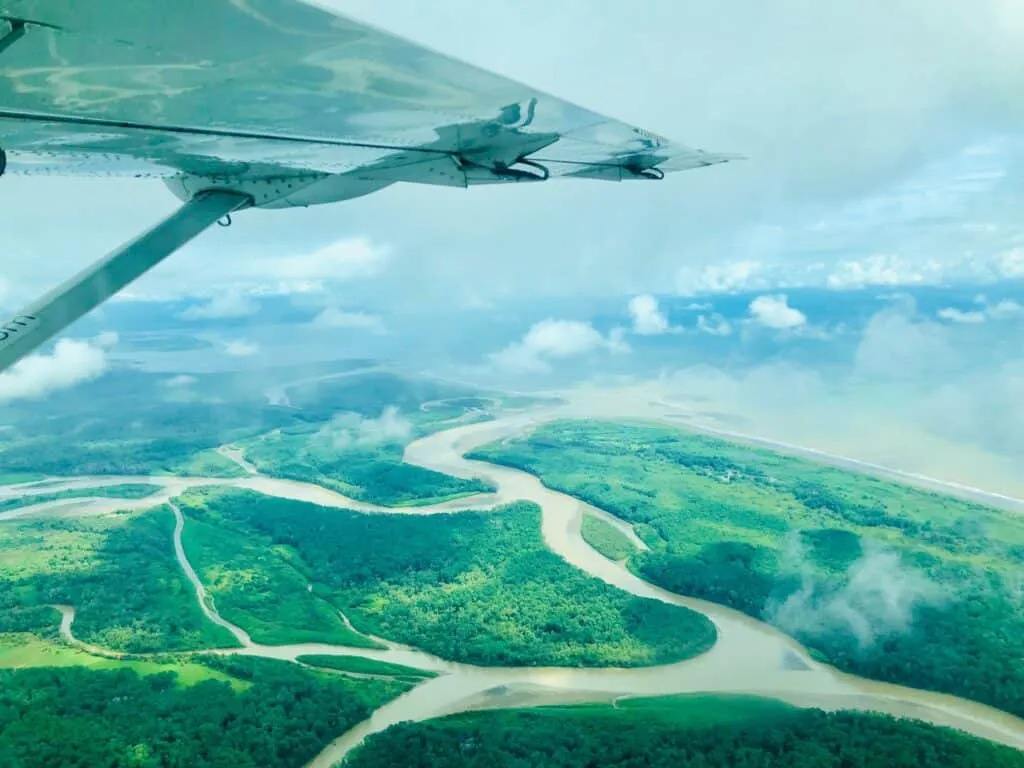
ELSEWHERE IN THE AMAZON
Which other countries can I travel to?
Ecuadorian Amazon: The city of Coca serves as a gateway to the Ecuadorian Amazon. From there, you can venture into the Yasuni National Park or Cuyabeno Wildlife Reserve, both offering immersive rainforest experiences. The best time to visit is during the dry season (June to November), when rainfall is lower, making it easier to explore.
Venezuelan Amazon: Ciudad Bolivar is a common starting point for exploring the Venezuelan Amazon. The Canaima National Park, with its iconic Angel Falls, is a popular destination. Due to political and economic challenges in Venezuela, be sure to check current safety advisories before planning your trip.
Guyana, Suriname, and French Guiana: These three countries in northeastern South America share a portion of the Amazon rainforest. In Guyana, the Iwokrama Forest and Kaieteur National Park offer incredible opportunities for wildlife encounters. Suriname’s Central Suriname Nature Reserve and French Guiana’s Guiana Amazonian Park are also both UNESCO World Heritage sites. The best time to visit is during the drier months, generally between August and November.
Bolivian Amazon: The Bolivian Amazon, accessible from the city of Rurrenabaque, is home to the Madidi National Park and Pampas region. Where tropical rainforest meets snowcapped mountains, Bolivia is a jewel in the Amazon’s travel crown. The dry season (April to October) is usually recommended for better weather and wildlife sightings. However, the rainy season (November to March) brings lush greenery and blooming vegetation.
Related Stories
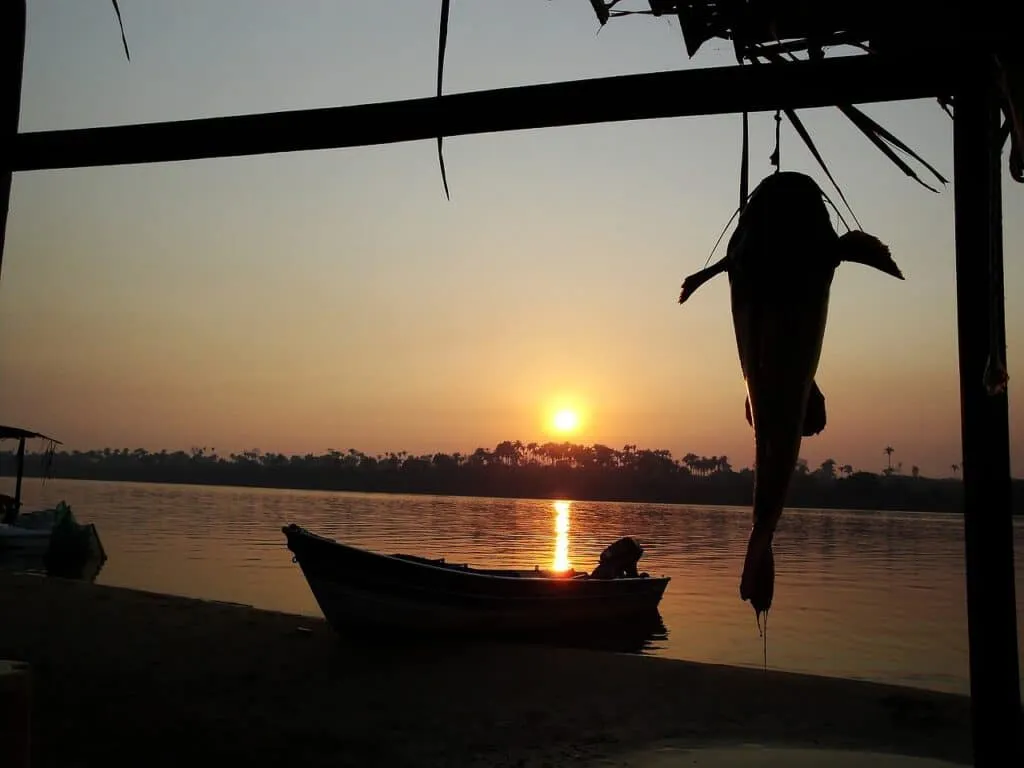
Harriet Rix: On the Magnificence of the Amazon
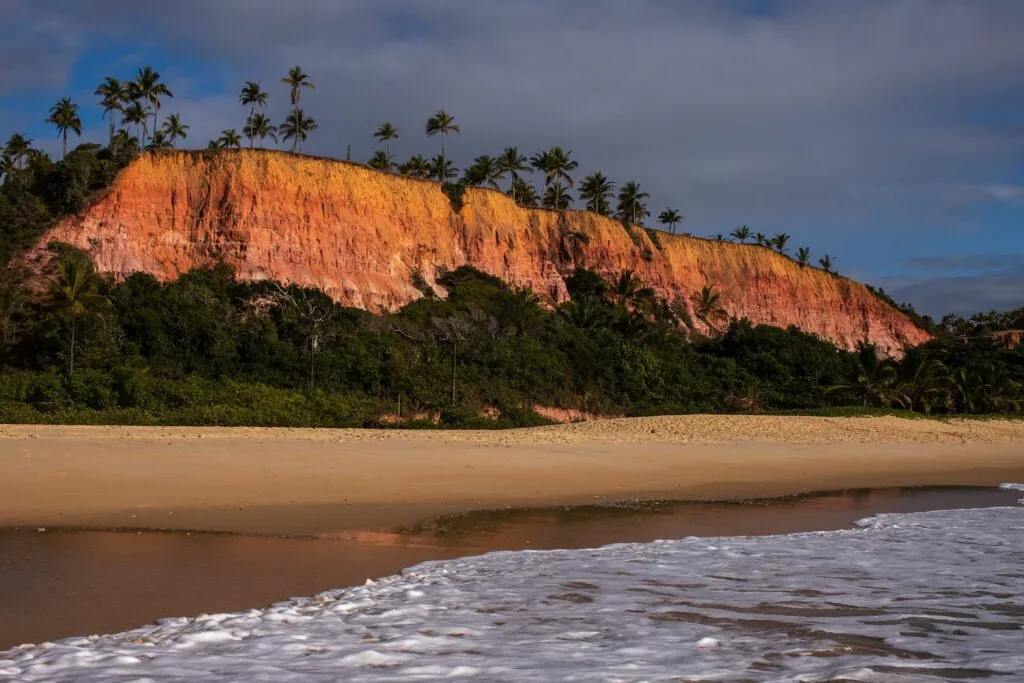
Brazil, Beyond Rio: Five Lesser-Known Escapes
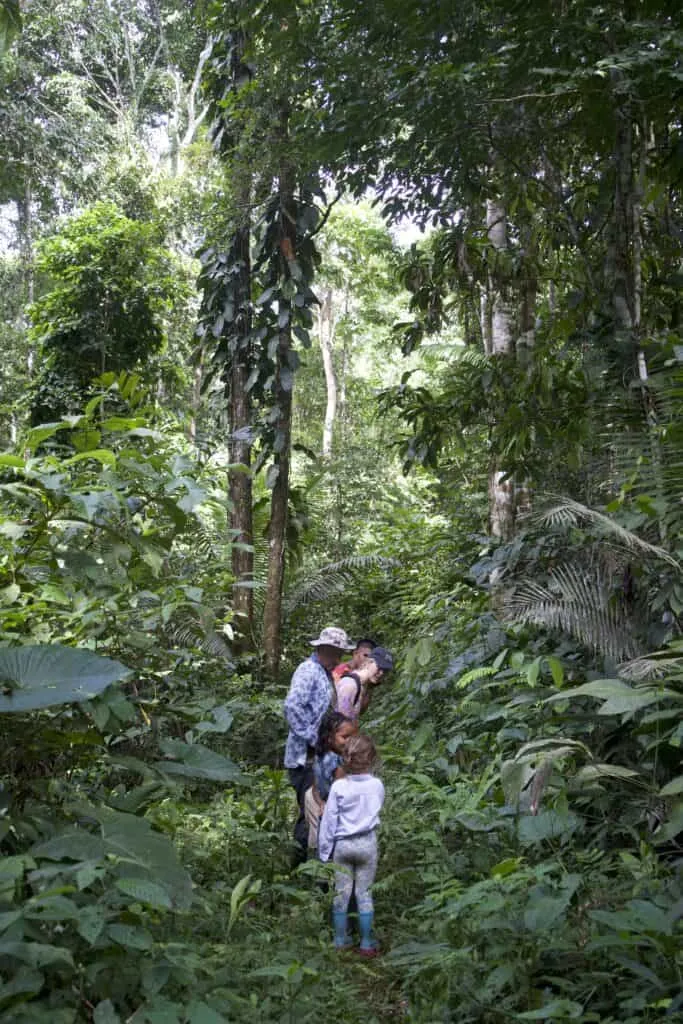
A Family Holiday to Colombia with Hattie Mills

Paul Rosolie on Protecting Peru’s Amazon with Junglekeepers
@plansouthamerica
